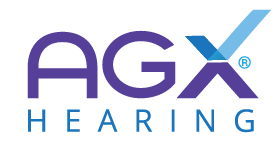Prevalence
According to the National Institute of Health, nearly 90 million Americans report episodes of dizziness at some point in their lives. This figure translates into more than 8 million physician visits per year from people seeking help for their dizziness problems. As we get older, balance disorders are even more prevalent. The National Institute on Aging reports one third of people over the age of 65 fall at least once per year. Other studies indicate that balance and mobility disorders are the most frequent cause of chronic disability among the elderly and that 60% of all emergency room visits by the elderly are due to falls.
Impact of Balance Problems
Disorders of balance and dizziness can have a significant impact on people’s lives beyond the obvious feeling of instability. Many patients report an inability to concentrate on various tasks, experience memory problems, and have increased tension due to fear of falling. These added problems occur because, for most individuals, maintaining balance is an automatic function requiring very little active thought process or energy. In contrast, people suffering from dizziness and imbalance allocate a great amount of energy to avoid falling. In some cases, dizziness and balance problems can result in withdrawal and isolation. Many people are hesitant to move in certain positions because it results in dizziness. Their overall activity level diminishes, which, in turn, causes more deterioration of their functional mobility. This creates a cycle of increased dependance on others, which can lead to other psycho-social difficulties.
Diagnosis and management
Unfortunately, the diagnosis and treatment of dizziness and balance problems is extremely challenging. People with chronic, long-term dizziness see an average of five physicians for their condition. This is because dizziness can result from many different causes, including interaction of medications, disturbances within the inner ear, diseases of the respiratory or cardiac systems, or tumors in the central nervous system. That’s why there needs to be a coordinated effort between your physician and medical experts specifically trained to handle the diagnosis and management of dizziness problems.
By virtue of their training and experience, the otolaryngologists at The Ear, Nose & Throat Associates of Manatee are uniquely qualified to handle disorders of balance and dizziness. By obtaining a comprehensive medical history, clinical evaluation, laboratory tests, and diagnostic evaluations, these specialists can diagnose and treat your problems with success.
No simple task
We’ve all heard of the clumsy kid in high school who can’t walk and chew gum at the same time. However, the more we know about this process, the greater appreciation we have for the complexity of this task. Balance is an interaction of sensory centers within the inner ear or vestibular system, vision, and somatosensory input (information coming from the legs, feet, and sensors within tendons and joints). All of this information is processed within the brain so that the appropriate interpretation of the world around you can take place. If there is damage or compromised function of one or more of these sensory systems, the brain misinterprets the information, which results in instability. Fortunately, with recent advances in diagnostic equipment and therapy techniques, there is now help for those suffering from the debilitating effects of dizziness.
Vestibular rehabilitation
Vestibular rehabilitation is an individualized approach of specific therapy protocols to help the patient overcome problems of dizziness and imbalance. Following a battery of diagnostic testing and examination by a physician, deficits within the various systems contributing to balance (vestibular, vision, and somatosensory) are determined, and a specific program is developed. This approach is a symptom-driven program to help the individual overcome or improve in the areas of daily living where they are having problems. A thorough history, as well as functional exam of current abilities and disabilities is completed. Vestibular rehabilitation also differs from many standard treatments of dizziness in that the use of medications to treat the symptoms is discouraged. Long-term use of medications under certain conditions can even have the effect of making symptoms worse or delaying recovery.
Candidacy
Patients who seem to respond best to vestibular rehabilitation are those with a history of a generalized state of disequilibrium, motion-provoked dizziness caused by changes in head or body position (“Every time I roll over to the right in bed, I get dizzy.”), or have documented vestibular deficits within the inner ear system based on test results. Chronic conditions that have been present for a long period of time can also respond well to treatment.
Does therapy hurt?
No. However, it does require effort on your part. During vestibular rehabilitation, through a systematic and progressively more challenging series of head, body, and eye movements, the brain learns to interpret new input from the ears, eyes, and legs. At first, many individuals feel worse before they get better because they are being asked to do some of the things that bring on their symptoms of dizziness. However, with repetition, the central nervous system learns to interpret this new information, and symptoms of disequilibrium and dizziness improve. Therapy is done in an outpatient setting with individuals coming in once or twice per week. The program typically lasts only 6–10 weeks with homework exercises done on a daily basis. As you might imagine, progress depends on the patient’s initial condition, motivation, and compliance with the program.
Does it work?
Studies from major medical centers around the country reveal that improvement in functional balance and daily living activities can occur regardless of age. Although progress may be somewhat slower for someone in their 80s, the actual amount of improvement that can be expected from this program is similar regardless of age. Approximately 75% of the patients enrolled in a vestibular rehabilitation program have significant improvement in their symptoms. This is good news for people suffering from dizziness and balance problems who are willing to invest time and energy into trying to get better.
This therapy is not for everyone. There are dozens of reasons why people may feel dizzy, many of which would not be appropriate for vestibular rehabilitation therapy. However, by working closely with your doctor and with referrals to specialists trained in the management of dizziness and balance, there is help for many individuals that was not available just a few short years ago.

